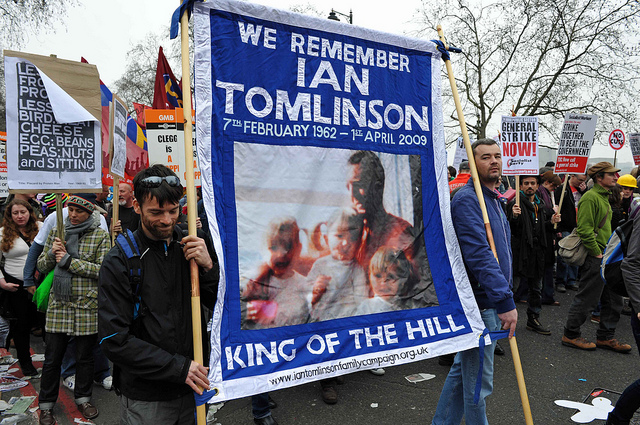With aspirations to raise awareness about the on-going conflicts in both Syria and the Middle East, Fardous Bahbouh believes that as a journalist, or someone who builds bridges between people, she can do this. In this piece, she discusses what journalism means to her alongside the aspirations that she has as a Syrian journalist.
Journalism is mainly about informing, educating, empowering and entertaining the audience. But, it is actually hard to explain what journalism is.
For me, it is a passion that I want to follow but sometimes find hard to articulate. It is as necessary as the air we breathe, but then how do you explain what the air is, especially in a foreign language! I want to write, make videos and TV programmes about four main things.
Firstly, I want to help in raising awareness about Syria and the Middle East. With the ongoing war in my country, I feel like I have a duty to use my skills and education to give a voice to Syrians. Unfortunately, there is plenty of coverage about Syrians by people usually pretending to be experts but not from actual Syrians themselves. With the tragic war and the huge humanitarian crisis, more ethical journalism is crucially needed to address this massive tragedy.
Secondly, I am also very interested in culture and intercultural communications. I want to write about the unique cultural aspects that enrich our lives. I have worked as a language teacher and a translator for years and I am now hoping that a career in journalism will help me share knowledge and information with a wider audience.
I once organised a networking event for Syrian Architects as part of my community building efforts in London. I was in a room full of talented and qualified architects who started introducing themselves and the bridges, roads, malls and fancy buildings that they built. When it was my turn, I introduced myself as a teacher and translator and said, “I build bridges between people”. Therefore, I would like to write about art, music, life style, women issues and travel.
My third interest leans towards stories. I love stories. Stories make me smile, laugh, and wonder in my imagination. Sometimes, real stories are very sad, but such is life! It is very inspiring and empowering to hear stories about ordinary people who go through extraordinary experiences. I want to help share their stories with empathy and compassion, as I believe personal stories with a human interest resonates more with people.
For example, what can be more inspiring than hearing the story of an elderly person who was rescued from under the rubble, lost all his fortune and had to flee war, but yet he still can smile and laugh while trying to learn English.
This was a great heart-warming lesson that I learnt from one of my students and I want to share stories like this with the world. I highly admire his defiance and strength in face of tragedy, and his beautiful and resilient spirit.
Another example is reviewing good news, because in our mad world, we are constantly bombarded with negative and tragic news. Therefore, there is a real need for meaningful positive stories to help us manage our lives without surrendering to despair. I was once invited as a radio show guest to review “good news”, and what initially seemed to be a challenging task ended up being a very rewarding and uplifting experience.
Finally, yet importantly, is investigative journalism. I strongly believe investigative journalism is an essential part of democracy as it brings politicians under necessary scrutiny. It helps in revealing information, countering crimes and tackling corruption. I hope to be able to conduct investigations into corruption and wrongdoing by governments and companies. However, nowadays there seem to be less funding and support for investigative journalism. Moreover, it can be a risky duty.

A career in journalism can be challenging, inspiring and fulfilling. However, there are potential risks and some ethical dilemmas. The very essence of professional journalism might contradict a person’s own values and beliefs. For example, the need for scientific experiments and animal rights make it hard to find a common agreement, as presenting two sides of every story is sometimes not necessary.
Also, take the common example of global warming. Until recently, when every environment story was presented, there seemed to be a need to mention that some people still do not believe that there is a global warming problem.
Moreover, like other professions, journalism has been through changes and has been influenced by the advanced technology that is available to us. A successful journalist needs to utilise these platforms and be active on social media.
Another important development is the rise of citizen journalism, which enables ordinary people to be actively involved in documenting events unfolding in front of them. A professional journalist can support and coordinate with citizen journalists such as in war torn areas and at crime scenes.
A relevant example is the murder case of Ian Tomlinson– a case where the police initially claimed that he died of natural causes but the journalist Paul Lewis used twitter to contact eyewitnesses and managed to put together enough pictures, videos and evidence to reveal the crime to help justice prevail.
Journalism indeed is a noble profession seeking to find the truth. It also informs, educates and entertains.
Journalists sometimes take huge risks while fulfilling their duties. I am hoping to be able to contribute to this great field while holding steady to my principles. I see myself as a writer – even though I am now a slow writer – and a TV talk show host.